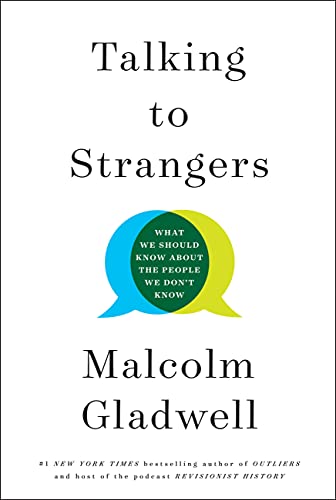As Malcolm Gladwell sees it, nearly nothing is as simple as it seems, and just about everything warrants curiosity and caution. Behind even the most mundane human exchange lie intricate systems of psychology, sociology, philosophy, and a 10,000-piece jigsaw puzzle composed of beguiling historical anecdotes.
Gladwell wants to pique our interest in society and human behavior. And in his new book, Talking to Strangers, the 56-year-old New Yorker writer turns his gaze to how ostensibly innocent conversations between people who don’t know one another can be inherently problematic.
The book was inspired by one particularly lethal conversation between strangers: that between Sandra Bland, a 28-year-old African-American woman who died in a jail cell, by what was ruled a suicide, and Brian Encinia, the white male police officer who pulled her over for failing to signal a lane change and ultimately arrested her. “The book begins with the question of ‘what happened?’” Gladwell says. “We have the interaction [between Bland and Encinia] on videotape, and we know exactly what they said to each other. It was the most upsetting of all the problematic encounters between police officers and African-Americans at that period, [and I ask], ‘Is this symptomatic of something more deeply problematic in the way strangers talk to each other in our society?’ and go from there.”
One could nip Gladwell’s inquisition in the bud by declaring that the problem is racism, plain and simple, but such an assertion gives Gladwell pause. “I think race is absolutely a crucial factor in their encounter,” Gladwell says, “but at the beginning of the book I say I will not dwell on it, not because it is irrelevant but because I don’t see how it helps us from preventing this in the future. What I want to do is say, ‘Let’s take another approach.’ Let’s ask, ‘Is there something fundamentally wrong with the way human beings deal with the other? And have those problematic ideas become the structure of our society?’ [Sandra Bland] died because of a particular philosophy of American police that has deep roots and is deeply problematic; to understand it just as an encounter between a white man and a black woman is to misunderstand it.”
Among the core problems that arise when strangers talk is what Gladwell calls our “default to truth.” “We assume someone is telling us the truth unless there’s powerful evidence telling us otherwise,” Gladwell says. “That helps us create a productive society, but it has a weak spot in that it allows us to be deceived by others.”
Another big problem is “the transparency assumption.” “We assume,” Gladwell says, “that people’s feelings are presented reliably on their face and in their body language, which is not true. We are constantly making this mistake. Take the case of Amanda Knox, on which I have a whole chapter. We assumed that just because she was a little bit weird [in her expressions], she was guilty of murder.”
Why do we assign so much value to the way strangers express themselves to us? Because in the land of family, friendships, and other familiars, such expressions are valid indicators.
“If you and I were very good friends, one thing that would happen is we would come to understand each other’s idiosyncrasies,” Gladwell says. “I would know, for instance, that ‘Nicole is someone who, when she’s very happy, gets nervous and her eye twitches’ or, ‘When she is sad, she does not show it on her face.’ We create highly individualized assessments of people’s feelings and expressions, but we can’t do that when we don’t know someone.”
In a sense, we’re taking the same math we use on people we know and applying it to people we don’t know, which naturally leads to a miscalculation. And in worst-case scenarios, that miscalculation could be the death of us. We make this mistake everyday, not just in real life but also with strangers on social media and with celebrities whom we may never meet yet feel we know.
“I just saw Once Upon a Time in Hollywood and came out of the movie theater feeling like I really knew Brad Pitt,” Gladwell says. “If I sat next to him on a plane, I would jump into conversation with confidence and bravado, feeling that I really knew the guy. I have zero insights into Brad Pitt from his performance, but it’s so easy to believe that I do.”
This piece was produced in partnership with Publishers Weekly and the Miami Book Fair.









